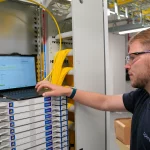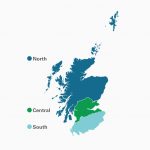The Black Country Finally Agree GBP7.5m Superfast Broadband Rollout
The Black Country (Dudley, Sandwell, Walsall and Wolverhampton) in England’s West Midlands has, after sitting out the first round of funding from the Broadband Delivery UK (BDUK) programme, finally agreed a £7.5m project to make superfast broadband (24Mbps+) services available to 95% of local premises by 2017.
At present much of the area can already access a Next Generation Access (NGA) broadband service and only around 7% are left to suffer with slower connectivity (note: just 0.4% get sub-2Mbps speeds), which is one of the reasons why the related Local Authorities decided to sit out the first round (i.e. the target for bringing superfast broadband to 90% by the end of 2015 was already set to be met via commercial investment). On the other hand, only 60% of local business can access superfast speeds.
Advertisement
But the situation changed when BDUK allocated an additional £250m (funding phase 2) and raised the target to 95% by 2017 as part of the Superfast Extension Programme (SEP), which triggered the relevant councils to pursue a new programme through the Black Country Local Enterprise Partnership. A related consultation document can be found here (link).
Ian Austin, MP for Dudley, said (Express and Star):
“Constituents got in touch with me after being told by broadband companies that there were no plans for Dudley to get superfast broadband. Places like London have been the first to benefit and I don’t see why Dudley should be left behind, so I’m really pleased 95 per cent of people in the Black Country will now be covered.
I’m pleased the Black Country Consortium and local councils have made this progress, but now I want the Government to guarantee that Dudley will get covered as soon as possible.”
In terms of funding, BDUK originally agreed an allocation of £4.99m to the Black Country, but this has since been scaled back to £3 million and the councils are matching that with another £3m (the remaining £1.99m from BDUK is still available should the local authorities find matching investment). A final £1.5 million is expected to come from the chosen supplier and it’s probably a safe bet to say they’ll pick BT, although this has yet to be agreed (still in procurement).
Mark is a professional technology writer, IT consultant and computer engineer from Dorset (England), he also founded ISPreview in 1999 and enjoys analysing the latest telecoms and broadband developments. Find me on X (Twitter), Mastodon, Facebook, BlueSky, Threads.net and Linkedin.
« ISP Origin Broadband Tries to Move on from their Digital Region Woes

















































Comments are closed